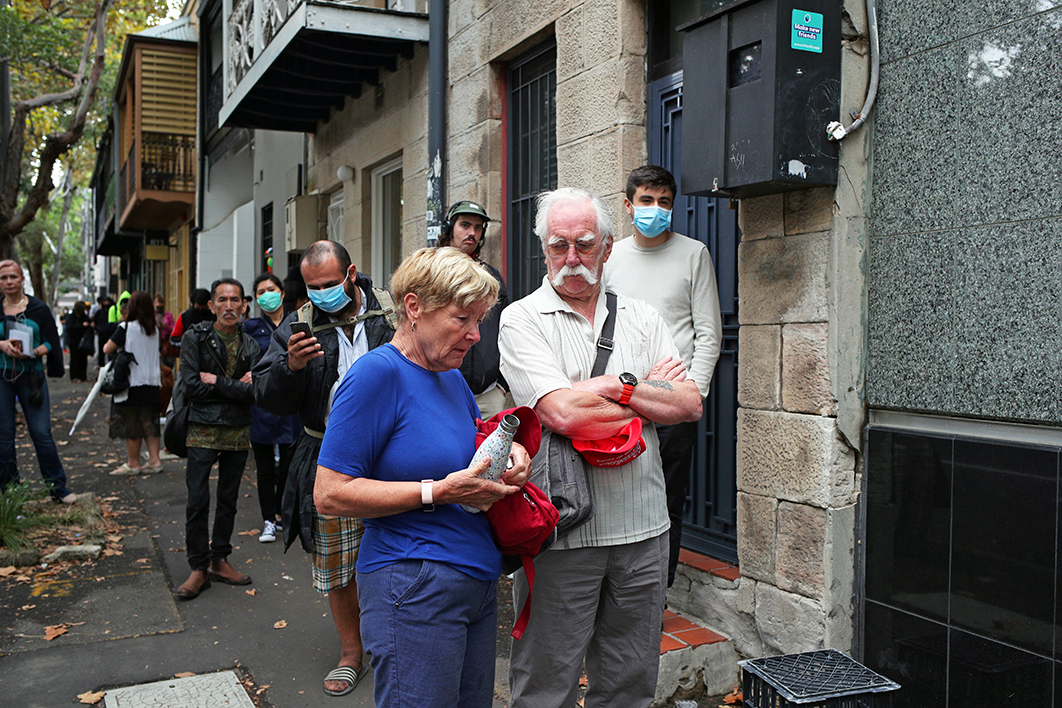The American economy was stuck in a vicious cycle before Covid-19. With highly indebted poorer households spending less, demand was falling and economic growth had been weakened. To stimulate activity, the Federal Reserve cut interest rates to make borrowing cheaper, resulting in even more debt and worry. And so the cycle started over again.
New research from economists Atif Mian, Ludwig Straub and Amir Sufi shows that this cycle is fuelled by inequality. Wealthy people have cornered a greater share of national income, and are saving more. Less well-off people are receiving a smaller share of income, and borrowing more. The resulting decline in interest rates has kept the cycle going.
It sounds eerily similar to the situation in Australia, and it’s not the only cycle that’s increasing inequality. A lack of competition between firms is having a similar effect: transferring wealth from poor consumers to rich shareholders. Breaking these self-perpetuating cycles will be critical to Australia’s economic recovery.
The nub of the problem is that rich people have a nasty habit: they save too much and spend too little. This isn’t necessarily a problem if their savings are invested in expanding businesses, creating jobs and contributing to economic activity. Sadly, though, Australia’s well-documented increase in inequality hasn’t been accompanied by an increase in investment. Quite the opposite: while inequality has grown, investment has flatlined.
Mian, Straub and Sufi’s research shows that this “savings glut of the rich,” as they call it, is creating as well as financing the debts of the non-rich. Too much saving and too little investment has depressed interest rates; and lower interest rates are fuelling debt levels among non-rich households, which are borrowing to keep up. For the first time, this research shows, the rise in the share of income taken by the rich can explain almost all of the increased household debt of the non-rich.
We can see a similar cycle playing out elsewhere in the economy. In the Oxford Review of Economic Policy last year, Joshua Gans, Andrew Leigh, Martin Schmalz and I showed how market power is transferring wealth from poor people to rich people. The mechanism is straightforward: big companies have more power to increase their mark-ups, and so they do. That might be good for shareholders (who get higher profits), but it’s bad for consumers (who pay more to consume).
With poor people spending most of their income on consumption and owning few shares, and rich people spending a smaller proportion of their income but owning lots of shares, market power increases inequality. This is a serious problem in a country like Australia, where more than half of our industries are concentrated and, unsurprisingly, mark-ups have risen 60 per cent since 1980.
What to do? Australia’s inequality problem isn’t new, but we are becoming increasingly aware of just how damaging it is economically, politically and socially. More alarmingly, we are learning how the macroeconomic and competition effects are creating self-perpetuating cycles of inequality. The recovery from Covid-19 will require deep structural reform to lift growth, and also presents an opportunity to break these cycles through holistic reform of tax, welfare and competition.
The tax system is too generous to the rich, and the welfare system is too mean to the poor. Tax reform is an opportunity to remove the incentives for companies to borrow rather than seek new investors (by introducing a corporate equity allowance, for example) and to tackle the tax breaks that boost the savings of the rich (by reducing superannuation tax concessions, for example). It is an opportunity to broaden the tax base to fund public investment projects that boost productivity.
We can also change the welfare system to directly reduce poverty and thus inequality. Covid-19 hit households at a time when their debts were already high. Strengthening the safety net and boosting household incomes in a way that preserves incentives to work — such as through an earned income tax credit — would help repair household balance sheets and reduce the debt burden constraining consumption.
To boost competition, the government should reform the laws that shield many industries from competition — including those in airlines, pharmacies, coastal shipping, the legal profession and the medical profession. Opening up mature industries to fresh investment is a good way to reduce market power.
The laws regulating mergers and acquisitions should be tightened to guarantee more scrutiny of proposed mergers in industries that are already concentrated. And more can be done to make it easier for people to start new businesses, including the use of profit-contingent loans, the scrapping of non-compete clauses, and the release of appropriately zoned land by state governments.
Past epidemics have one thing in common: they made inequality worse. There’s no reason to think Covid-19 will be any different. The Australian economy can’t afford to snap back to old habits. •




